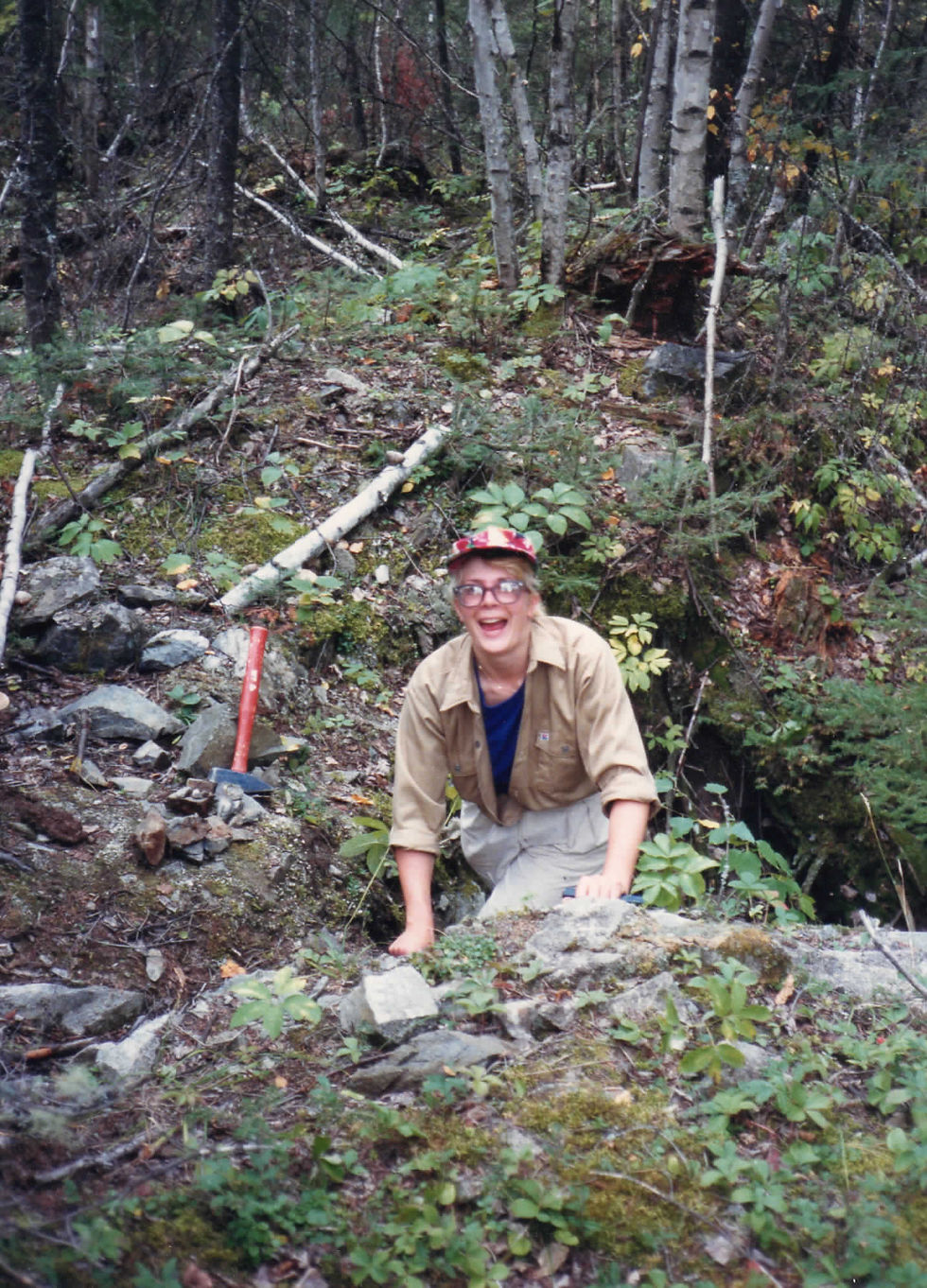Karen Rees, P.Geo.
- womengeosciencecan
- Jun 2, 2021
- 4 min read

How did you get started as a geoscientist in the mineral exploration industry?
I have always liked to seek out data, compile it, look for patterns, answer questions, and solve puzzles. At the University of Saskatchewan, the geological sciences program certainly provided for that and I looked forward to pursuing practical experience in the field. However, my start in the mineral exploration industry did not occur until 3 years after completing my undergrad program.
One summer, while I was working at my post-graduation job as a salesclerk in a family-owned fabric store in Saskatoon, Saskatchewan I received a call from a geologist with whom I had formed a friendship while we were in university and which has persisted to this day. She was working for a company that needed field geologists, and a lot of them. The company did not require any prior work experience. Although I had pretty much given up, I owed it to myself to embrace the opportunity and find out if I had it in me to do this job. Amusing now, the job was in Red Lake, Ontario and I had to fly there. For a young person who grew up in rural Saskatchewan and had never been on a plane, that in itself was daunting. That first job, although it was only a 9-month contract, gave me a robust set of field skills and experience ranging from prospecting to reconnaissance mapping to running a three-drill program.

What are some of the positions you’ve held over the years?
Working primarily in the junior exploration space, there are opportunities to do almost every job there is to do, and often, conducting several of them at the same time. With the occupation of Geologist, I enjoyed a range of experience: field geologist, project geologist, soil sampler, core logger, exploration manager, camp builder, cook, contracts manager, human resources, marketing, finance, communications, mentor, share capital management, corporate governance, liaison for board of directors…the list goes on.
One day a geoscientist is in a trench in Red Lake, another day flying around in a helicopter, or giving site tours to First Nations communities, or logging drill core, or giving a presentation to high net-worth investors in Liechtenstein!


To what do you credit your career advancements?
My geoscience career spans 33 years. I achieved senior management and executive positions with Temex Resources Corp., the junior explorer that I worked with for 12 years until it was acquired by Lake Shore, a gold producer with operations in Timmins, Ontario. I attribute the professional growth to a strong work ethic shared by the very first project geologist that showed me the ropes, hard work, a keen desire to obtain the best information possible, improve systems and the unwavering encouragement and support of my manager and board of directors. My career is still in progress, as a consultant, and as a director on three junior exploration company boards.
How have you given back to the geoscience community?
My commitment to the minerals exploration and development sector began in 2011 as an enthusiastic volunteer with the Prospectors and Developers Association of Canada (PDAC). I first became a member of the PDAC Human Resource Development (HRD) Committee and the Student-Industry Mineral Exploration Workshop (S-IMEW) planning committee. The mandate of HRD is to develop and deliver programs needed to meet current and future human resource requirements in the mineral exploration and development industry, raise awareness of career opportunities and provide support to students and early career geoscientists as they build their careers. S-IMEW is a flagship program of PDAC, started in 2007, with the aim to provide to geoscience students from across Canada, hands-on training in mineral exploration techniques and exposure to the wide variety of occupations that exist in this industry. Since that time, I was elected to the PDAC Board of Directors, and am on the Executive Committee and the Governance and Nominating Committee. I am a mentor in the PDAC Mentorship program and participate with advocacy teams to advance the interests for the mineral exploration industry in Canada.

Given the cyclical nature of the industry, you must have faced a downturn – how did you weather your way through it and what advice would you give to young geoscientists and recent graduates who might face the same situation?
Like many of us who have been around for awhile, I have seen many downturns. One such time, I was able to bridge a gap in mineral industry employment by working with a consulting firm that specialized in public consultation and communications programs for municipal and remote infrastructure projects. In this firm, the experiences gained were directly relevant to the more advanced roles in the minerals industry I later held. If one is out of work in a minerals industry downturn, try to get a job in a different industry that will give you other experience and skills that will be useful to you as a developing geoscientist or manager in the exploration industry.
What are some of the most important lessons you’ve learned while working in the industry?
My number one adage is “flexibility is the key to success”. We must be adaptable and agile to be responsive to changing circumstances.
Treat every experience as a learning experience, and every person you meet as someone to learn from.
Push yourself beyond your comfort zone and aim to assume more responsibility and accountability.
Be respectful of everyone you meet. This industry, while global in scale, is actually a very small world.
Take the opportunity to volunteer with an organization. Not only will it help others, it will expand your network and horizons, and make you a better person.
All photographs (c) Karen Rees





Comments